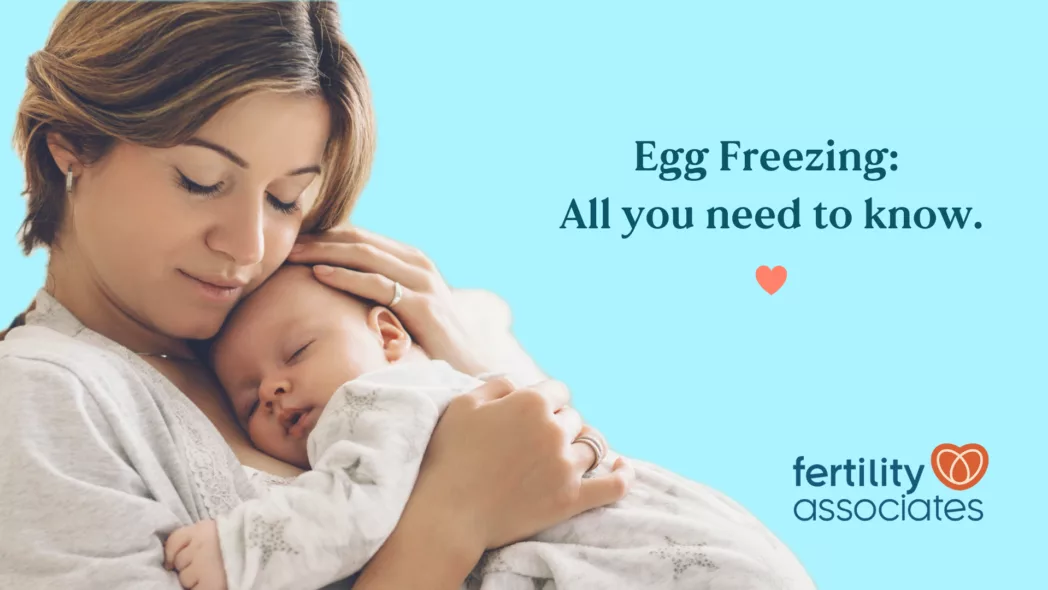What is egg freezing?
Egg freezing involves all the steps of an IVF cycle up to and including egg collection. Eggs are then frozen by a method called vitrification. When the eggs are required they will be thawed, and the woman resumes the second half of an IVF cycle: adding sperm to the eggs, embryo transfer, and freezing any spare embryos.
Who freezes their eggs?
- women aged from mid 20's through to early 40's
- single women who have not met the right person just yet or
- women in relationships, where maybe they are not ready
We have egg freezing packages that include medication - so you know what the price is before you start. Check out our fees page here.
The process of egg freezing
Egg freezing is a method of preserving a woman’s fertility so she can try and have children later. As you age, the quality of your eggs declines, but when your eggs are frozen, their age is ‘frozen in time.’
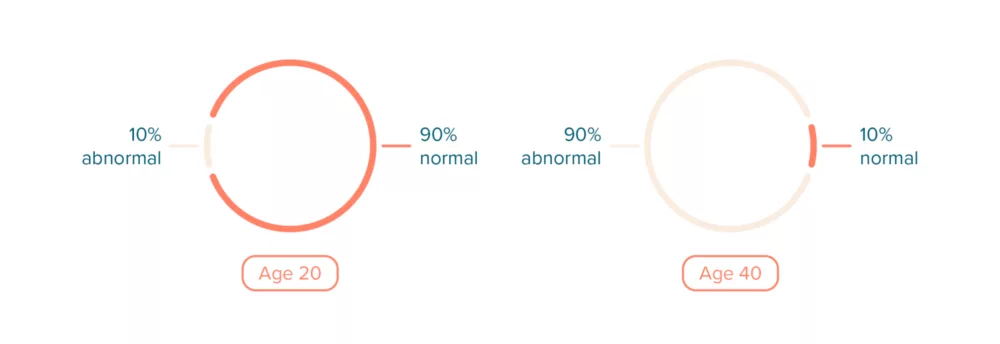
The number of eggs frozen differs for each individual and is determined by the number of viable eggs produced during ovarian stimulation. Some may need just one cycle, while others might require multiple, depending on factors such as ovarian reserve, the body’s response to stimulation, as well as maternal age and egg quality.
We use the AMH test to determine ovarian reserve. This gives us a guide a sot how many eggs we can expect to get from a cycle, although this is never guaranteed. We can then use these results, in conjunction with the ‘Chances of a live birth’ chart to show how many eggs we are likely to need to result in live birth.
This gives us an indication of the total number of eggs that will need to be frozen, as well as whether you may need to do more than one egg collection cycle.
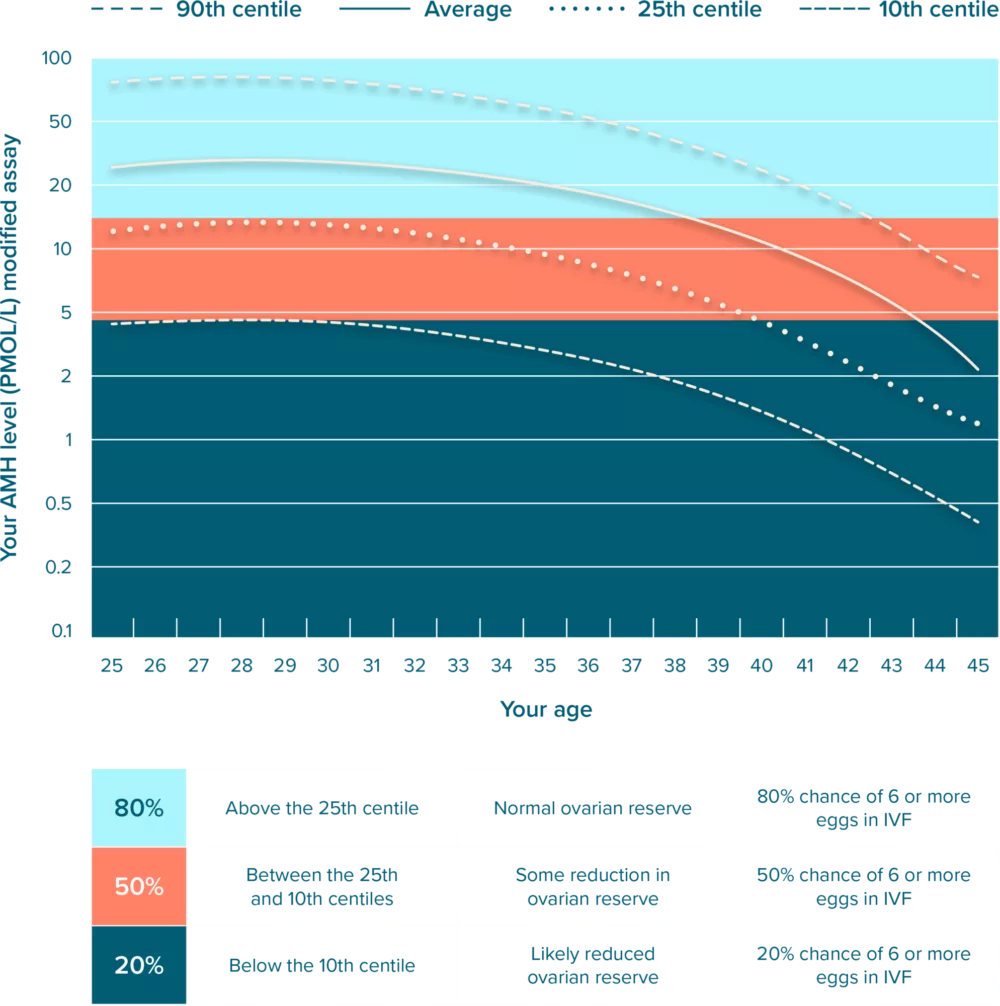
Egg freezing: all you need to know
How can I freeze my eggs?
When the eggs are to be used at a later date, they will be thawed, the woman will resume the second half of an IVF cycle: adding sperm to the eggs, embryo transfer, and freezing any spare embryos.
- you might really want to have a baby, but you don't have Mr Right yet and don't want to leave things to chance
- you might be concerned that your fertility is in decline, but you're not ready to have children quite yet
- you might need to preserve your fertility before cancer treatment or other treatments that might impact your fertility
- you might be starting gender-affirming hormone treatment (GAHT), but want to keep your options open.
Here, we take you through some options so you can find out what might be right for you...
When is the right time?
The right time to try to have a baby depends on your unique circumstances - it's an incredibly personal decision. You may be single, with a partner, or in a LGBTQI+ relationship. If you're not in a position to try for a baby now, egg freezing may be an option to help preserve your fertility.
It's easy to take the first step
To get started, we recommend you make an appointment to talk with a fertility specialist. At this consultation, the specialist will explain options and help you form an initial plan. He or she will also arrange some initial screening tests to assess your fertility.
If you'd like an informal chat to explore your options, book a free, no obligation chat with one of our experienced fertility nurses.
We have egg freezing packages that include medication - so you know what the price is before you start. Check out our fees page here.
Typical timeline for egg freezing
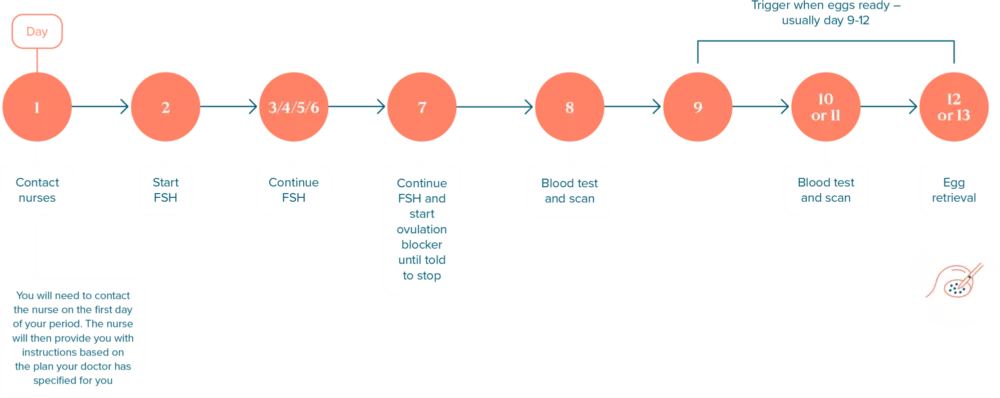
Egg freezing FAQs
When is the right time?
The right time to try to have a baby depends on your unique circumstances. It's an incredibly personal decision. You may be single, married, or in a LGBTQI+ relationship. If you're not in a position to try for a baby now, egg freezing may be an option to help preserve your fertility.
Is there any legal implications of egg freezing?
The Human Assisted Reproductive Technology (HART) Act limits storage of sperm, eggs or embryos to a maximum of ten years initially. The clinic can help you apply to the ethics committee if you want to extend storage before you reach the ten year limit. You can’t use sperm, eggs or embryos after a person’s death unless the person has made it clear in their consent form they want this to happen. You can choose to leave sperm or eggs to your partner for them to use, your partner can’t donate them to another person.
Are there any risks?
Frozen sperm and embryos are stored in thin plastic straws immersed in liquid nitrogen.
Cross-contamination of straws by viruses such as Hepatitis or HIV is a theoretical risk although it has never been reported. As a precaution we store sperm for men positive to Hepatitis B or C or to HIV in a separate bank. There is a very small risk that a liquid nitrogen bank will fail, causing the sperm, eggs or embryos stored in it to perish. Bank failure has been reported occasionally around the world. Straws containing sperm, eggs or embryos may be handled while stored for various reasons, such as when retiring a bank or moving samples to a different bank location.
There is a very small risk that handling could sometimes reduce the viability of frozen samples despite the care taken. Loss of samples during handling and moving has also been reported. We take reasonable precautions but cannot be held responsible for the loss of sperm, eggs or embryos from bank failure.
What are the chances of conception using stored sperm, eggs or embryos?
If you have frozen sperm, the type of treatment to use depends on the number and quality of the sperm stored. IVF and IUI pregnancy rates are the same using frozen sperm and fresh sperm. If you have embryos frozen, the chance of pregnancy is similar to that from using fresh embryos. About 95% of embryos survive freezing and thawing. Eggs are more prone to damage from freezing and thawing than embryos, and there is more variation in egg survival between individual women than there is for embryo survival.
For some women 90% or more of their eggs survive, while for others the rate may be closer to 50-70%. If an egg survives,
then most people have normal embryo development, but for a few embryos' development may be poor. Unfortunately, there is no way to predict this. The most important factors influencing the chance of having a child is your age when the eggs were frozen and the number of eggs or embryos available. Fertility Associates has a discounted fee for women who want to do a second or third egg freezing cycle.
Several experts have calculated the chance based on the number of eggs stored and the age of the women when she stored her eggs – an example is shown in Figure 11, using data from a scientific publication by Doyle and coauthors in the journal Fertility & Sterility. For instance, a 36-year-old woman who has 8 eggs frozen is calculated to have a 45% chance of having a child using these frozen eggs.


